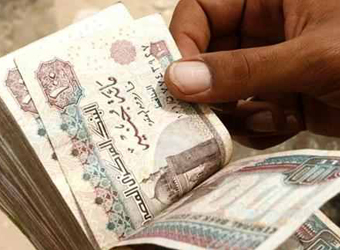Capital Intelligence (CI), the international credit rating agency, announced that it has affirmed Egypt’s Long-Term Foreign and Local Currency Sovereign Ratings of ‘B-‘ and its Short-Term Foreign and Local Currency Ratings of ‘B’.
The affirmation of Egypt’s ratings takes into account: (a) the stabilisation of short-term financing risks, in large part due to the availability of financial assistance from friendly states and international donors; (b) the gradual adoption of fiscal consolidation measures aimed at reducing the large budget deficit; and (c) the improving security situation. Nevertheless, the ratings continue to be constrained by the fundamental weaknesses of the Egyptian economy and public finances, as well as by political risk factors.
CI notes that near-term external financing risks have receded due to the financial support received from the member states of the Gulf Cooperation Council, (GCC). Since July 2013, GCC states have pledged total support to Egypt in the region of $18.9 billion (6.6 per cent of Egypt’s GDP), most of which has been disbursed. This support has been in the form of cash donations, interest-free loans, development related financing, oil and oil products. CI considers it likely that financial support from bilateral lenders will continue over the short to intermediate term in view of Egypt’s regional importance and Saudi Arabia and the UAE’s political support for the new Egyptian government.
International reserves are expected to increase during 2014-16 – provided that the political situation does not deteriorate – but are unlikely to reach pre-crisis levels. Nevertheless, CI expects foreign reserves to provide broadly adequate coverage of short-term external debt (on a remaining maturity basis) and a reasonable buffer against moderate external economic shocks. However, an increase in Egypt’s external financing needs could offset the growth in foreign reserves and lead to renewed balance of payments pressures.
Egypt’s ratings continue to be supported by the country’s comparatively low level of external debt, which stood at 16.4 per cent of GDP (64 per cent of current account receipts) in 2014. The debt maturity profile is relatively favourable and gross external financing requirements are low at an estimated 7.7 per cent of GDP in FYE 2015.
The security situation has improved following the recent election of General Al Sisi as president, and economic activity appears to be picking up. Nevertheless, political risk remains a concern in view of the continued polarisation between supporters of the new president, who was elected by a minority of eligible voters, and those of the deposed Islamist president.
In the policy arena, bilateral financial support has provided the authorities with a short respite to focus on measures needed to strengthen macroeconomic and fiscal fundamentals. The new government has announced an ambitious reform agenda and recently raised fuel prices in a step towards reducing costly subsidies. The partial lifting of fuel subsidies is expected to contribute to a decline in the budget deficit to a still high 12 per cent of GDP by FYE 2017 (compared to 14 per cent of GDP in FYE 2013); however, stronger efforts are necessary to lower the deficit to safer levels. General government debt remains very high and is projected to reach 93 per cent of GDP in FYE 2017 – contributing to significant financing needs.
OUTLOOK
The Outlook for the ratings is ‘Stable’. This means that Egypt’s ratings are likely to remain unchanged over the next 12-24 months, provided key credit metrics evolve as envisioned in CI’s baseline scenario and no other credit quality concerns arise.
The ‘Stable’ Outlook reflects CI’s current expectation that Egypt’s fiscal and external position will possibly stabilise over the next year or so, based on the continuation of external support and the increasing likelihood that the new government will continue its gradual structural reforms.
Source: Capital Intelligence



